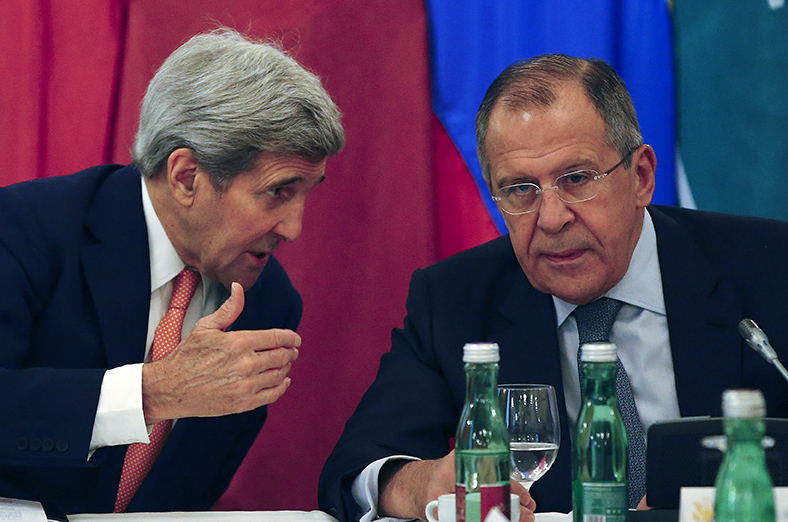
US decision to deploy Special Operations Forces will not change situation significantly, says Atlantic Council’s Frederic C. Hof
The Obama administration’s decision to deploy less than fifty US Special Operations Forces to Syria is a significant shift in US strategy, but one that is unlikely to tilt the balance on the ground in a war that is now in its fifth year, according to Atlantic Council analysts.
“Deploying a handful of US Special Operations Forces to Syria will not change this situation significantly,” said Frederic C. Hof, a Resident Senior Fellow in the Atlantic Council’s Rafik Hariri Center.
“It is a band-aid of sorts, although a potentially useful one,” he added.
The Oct. 30 announcement to send Special Operations Forces into Syria is significant because it marks the first time that US troops will be deployed in Syria since the start of the uprising against Syrian President Bashar al-Assad’s regime in 2011. White House spokesman Josh Earnest said the US troops will be deployed on a “train, advise, and assist mission” and will not be engaged in combat.
US troops have, however, conducted at least one operation in Syria in the past. That operation resulted in the death of Abu Sayyaf, a top Islamic State of Iraq and al-Sham (ISIS) commander, and the capture of his wife.
The shift in US strategy comes at a time when Russia and Iran have taken on a more prominent role in fighting the Assad regime’s enemies, including, worryingly for Washington, US-backed Syrian rebel groups.
“These [US] special operators can certainly help existing resistance elements. And by putting some ‘skin in the game’ on the ground in Syria, Washington may be able to make a credible pitch to regional powers to provide the ground combat components that can sweep ISIS from Syria, thereby tilting the fight in Iraq in a favorable direction,” said Hof, who previously served in the Obama administration as a Special Adviser for transition in Syria.
Faysal Itani, a Resident Fellow in the Rafik Hariri Center, said the US decision marks a significant shift in strategy against ISIS in northeast Syria regardless of the fact that only a small number of US troops are being deployed.
He predicted that the role of these US Special Operations Forces will be similar to that envisioned for the Syrians trained under the now-defunct US train-and-equip program. The Obama administration was forced to roll up the $500-million program in October after it produced no more than a handful of US-trained fighters.
“Those Syrian fighters were also tasked with embedding with other anti-ISIS fighters, and would reportedly be able to call in US airstrikes and provide other means of support including front-line engagement if necessary,” said Itani.
“Of course, train-and-equip was hampered from the start by vetting that required participants to fight ISIS only, and not Assad. The United States has recognized this absurdity and sending US forces in is a rather elegant solution, since this avoids the Assad problem,” he added.
Another implication of the new US strategy is that the United States “realizes that identifying and helping locals that share its agenda – in this case, primarily fighting ISIS – is more efficient than trying to create such a force from scratch, especially a large one as train-and-equip had envisioned,” said Itani.
Itani contended that even a few dozen US Special Forces can make a difference on the battlefield, but it is not clear whether that will be enough to take ISIS’ de facto capital of Raqqa.
“However, it could help attract local recruits to what will be seen as an empowered effort, and perhaps help build some trust between Kurdish and Arab forces,” he said. “At the very least, it signals that the United States is recognizing at least some of the inherent contradictions and absurdities of its previous approach.”
The White House’s decision came as representatives from seventeen countries, including the US, Russia, Iran, Saudi Arabia, Qatar, and Turkey, and the European Union and the United Nations were meeting in Vienna to try and find a way to end the war in Syria that has claimed 250,000 lives and forced more than 10 million Syrians from their homes. This is the first time that Iran is participating in such an effort with the United States and Saudi Arabia.
The US demand that Assad must step down from power as part of any peace deal has been a key sticking point in previous discussions as Russia and Iran are vehemently opposed to it.
Meanwhile, US President Barack Obama’s stated objective of degrading and destroying ISIS has also been hamstrung in Syria as well as in Iraq by the absence of an adequate number of ground forces that are capable of seizing and holding territory with air support from the US-led coalition, said Hof.
“In Syria, this shortfall was aggravated by a train-and-equip program designed on faulty premises and destined to fail,” he added.
Ashish Kumar Sen is a staff writer at the Atlantic Council.
Image: US Secretary of State John Kerry (left) talks to Russian Foreign Minister Sergey Lavrov during a photo opportunity before a meeting in Vienna, Austria, on Oct. 30. (Reuters/Leonhard Foeger)

